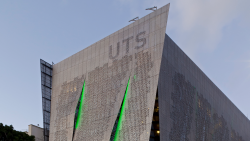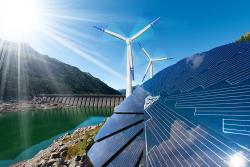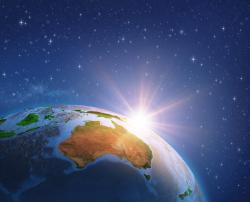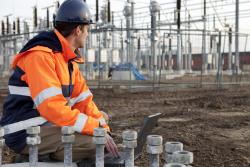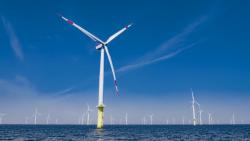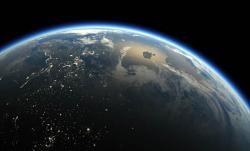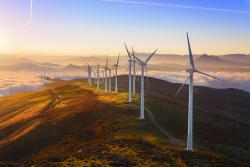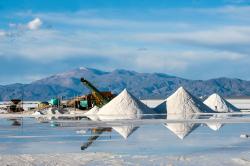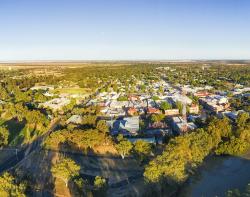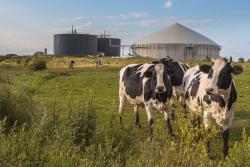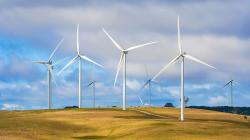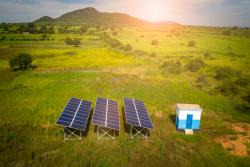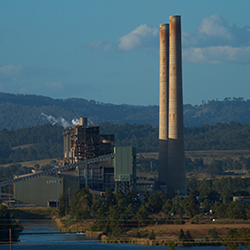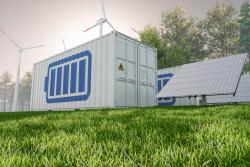100% Renewable Energy Based Net-Zero and Nationally Determined Contributions (NDC).
This area of our expertise focuses on the evolution of energy infrastructure as we transition to 100% renewable energy.
We help our clients to consider the future of energy by engaging in modelling and scenario development (for example: EV, PV grid integration, IoT, prosumers, business models, systems), and we seek to answer pressing questions such as:
- In an environment where renewable energy can deliver electricity, heat, gas, or hydrogen, how can we optimise interactions between our electricity, gas and water infrastructure to accelerate the transition to a zero-carbon economy?
- How can developing countries with low electricity access leapfrog fossil fuels for 100 % renewable energy access?
- What business models are needed to ensure positive community outcomes when looking at 100% renewable energy at the fringe of the grid?
- How will large-scale transport electrification impact the electricity system?
- What are the limits of local energy – how far can local or ‘distributed’ solutions reach?
- What are the energy infrastructure implications if Australia was to become a major renewable energy exporter?
PROJECT
The One Earth Climate Model (OECM) research project
The One Earth Climate Model (OECM) was established in 2017 by scientists from UTS ISF, the German Aerospace Center (DLR) and the University of Melbourne’s Climate & Energy College. Since then, it has been used to devise current carbon-reduction pathways for countries, regions and key industry sectors.
Now, the OECM has been applied to numerous countries and regions to produce energy scenarios and fair national defined carbon budgets, as well as detailed carbon budgets for key industries in those analysed countries.
Detailed datasets for net zero 1.5°C sectorial pathways that contain energy and emissions data to inform science-based decarbonisation targets are available here.
PROJECT l Climate-KIC
Australia-EU Green Hydrogen Dialogue
The Australia-EU Green Hydrogen Dialogue facilitates knowledge sharing and promotes mutual understanding through regular dialogues with policymakers, business, industry associations, researchers and civil society on issues related to green hydrogen.
The Dialogues will explore green hydrogen potential derived from renewable electricity sources both on land and offshore, its interlinkages with Australian climate objectives and the potential convergence of relevant Australian policies and standards frameworks with those of the EU.
The project will be led by Climate-KIC Australia in partnership with the ARC Training Centre for the Global Hydrogen Economy (GlobH2E), NSW Decarbonisation Innovation Hub’s Powerfuels including Hydrogen Network and the UTS Institute for Sustainable Futures.
This activity is part of the European Union Climate Dialogues (EUCDs) project.
PROJECT l 2021-2023
100% renewable energy for Nepal
ISF developed a climate and energy pathway for Nepal as part of the One Earth Climate Model research project.
IMPACT STORY
Astute analysis and advocacy pave the way for ATN emission cuts
ISF’s sophisticated analysis and persuasive advocacy were behind a dramatic cut in greenhouse gas emissions achieved by the Australian Technology Network of Universities.
PROJECT l 2022
Domestic Hot Water and Flexibility
Net zero pathways and energy storage potential of domestic hot water. The project investigated the potential and pathways for increasing both the efficiency and flexibility of domestic water heaters.
View more projects
PROJECT | 2022
Supercharging Australia's Clean Energy part 2
ISF revisits a project from 2018, asking this time how much of Australia's super fund would be required to achieve energy sector decarbonisation by 2050.
PROJECT | 2021
How can we limit global warming to 1.5°C?
ISF researchers have developed energy-related carbon budgets for a sustainable pathway towards 1.5°C.
PROJECT | 2021
Market Capacity for electricity generation and transmission projects
There is a surge in demand for skills, labour and materials due to the rapid increase in public infrastructure investment. Does Australia have the capacity to meet these requirements?
PROJECT | 2021
Offshore wind in Australia
Research centres and trade unions come together in a wide-reaching study that shows how Australia could be host to a thriving offshore wind industry, and how this would play into a just transition for the energy sector.
NEWS | DEC 2020
Sectoral Pathways to Net Zero
ISF has modelled pathways for industries to take towards the Paris Agreement goal of net-zero. The Net-Zero Asset Owner Alliance (NZAOA) is an international group of institutional investors, representing more than USD 4.
IMPACT STORY
Roadmap for survival
ISF has produced a detailed and achievable roadmap for meeting the emissions targets of the Paris Agreement and avoiding climate catastrophe.
PROJECT | 2019
Renewable energy for Vietnam
ISF examined Vietnam's potential to embrace a low-carbon power system by modelling renewable energy scenarios.
PROJECT | 2019
100% renewable energy for Bangladesh
This study analysed the potential utility of different renewable energy technologies in Bangladesh, including solar PV, onshore and offshore wind. In addition to a quantitative analysis, the study provided a specific geographic overview of where specific technologies can be used.
Taking the goal of universal energy access into account, this research also provided an estimate of Bangladesh’s future total energy demand. The study developed 100 per cent renewable energy trajectories from 2016 until 2050, during which 100 per cent renewable energy will be achieved by 2030, 2040, and 2050.
Client: Coastal Development Partnership (CDP)
Partners: Bread for the World, World Future Council
Researchers: Sven Teske, Tom Morris, Kriti Nagrath
RESEARCH OUTPUTS
100% Renewable Energy for Bangladesh: Access to renewable energy for all within one generation (Report)
PROJECT | 2019
Responsible minerals sourcing for renewable energy
New research exposes extent of mineral demand for renewable energy technologies
PROJECT | 2018
100% renewable energy for Narrabri
New research, offers hope that renewable energy could deliver hundreds of lasting jobs in the New South Wales town of Narrabri.
PROJECT | 2018
Opportunities for renewable energy from biosolids
As subcontractors to a larger AECOM-managed project, ISF analysed global and regional megatrends to develop possible future scenarios against which to test the flexibility of the renewable energy from biosolids options. The use of scenarios developed from local disruptors ensured an adaptive strategy for Hunter Water’s regional approach to renewable energy from biosolids.
Client: Hunter Water
PROJECT | 2018
Supercharging Australia’s clean energy transition
How just 7.7 per cent of superannuation could fund Australia’s transition to 100% renewable energy by 2030.
PROJECT | 2017
100% renewable energy for Tanzania
Exploring a low-cost opportunity for Tanzania to become middle income country.
PROJECT | 2017
Beyond Coal: alternatives to extending the life of Liddell power station
ISF presented three possible scenarios for the future of a coal station, guiding the way for future energy transition.
PROJECT | 2017
The role of energy storage in Australia's future energy supply mix
Modelling a possible future in energy storage and ensuring its sustainability.





